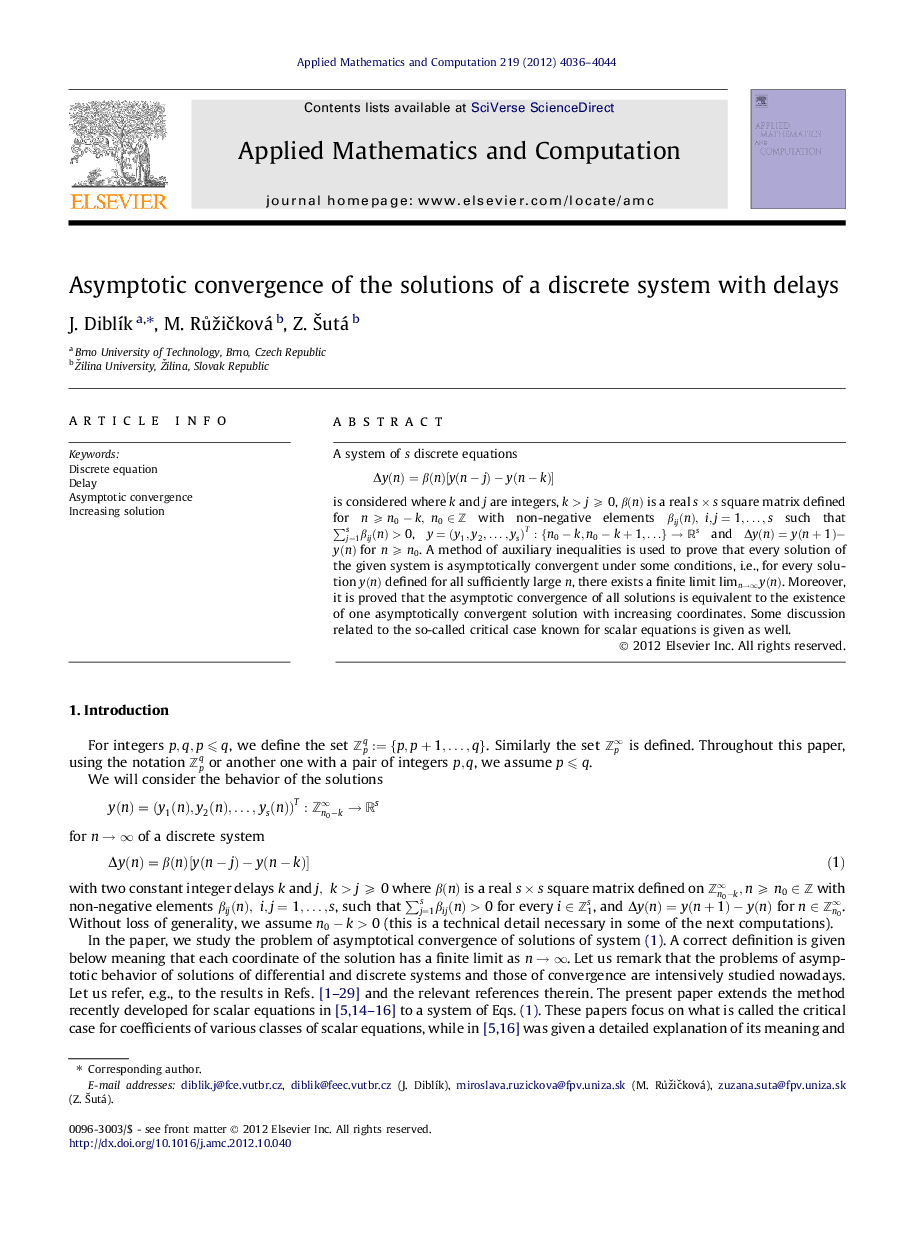| Article ID | Journal | Published Year | Pages | File Type |
|---|---|---|---|---|
| 4629376 | Applied Mathematics and Computation | 2012 | 9 Pages |
Abstract
A system of s discrete equationsÎy(n)=β(n)[y(n-j)-y(n-k)]is considered where k and j are integers, k>j⩾0, β(n) is a real sÃs square matrix defined for n⩾n0-k,n0âZ with non-negative elements βij(n),i,j=1,â¦,s such that âj=1sβij(n)>0, y=(y1,y2,â¦,ys)T:{n0-k,n0-k+1,â¦}âRs and Îy(n)=y(n+1)-y(n) for n⩾n0. A method of auxiliary inequalities is used to prove that every solution of the given system is asymptotically convergent under some conditions, i.e., for every solution y(n) defined for all sufficiently large n, there exists a finite limit limnâây(n). Moreover, it is proved that the asymptotic convergence of all solutions is equivalent to the existence of one asymptotically convergent solution with increasing coordinates. Some discussion related to the so-called critical case known for scalar equations is given as well.
Related Topics
Physical Sciences and Engineering
Mathematics
Applied Mathematics
Authors
J. DiblÃk, M. RůžiÄková, Z. Å utá,
